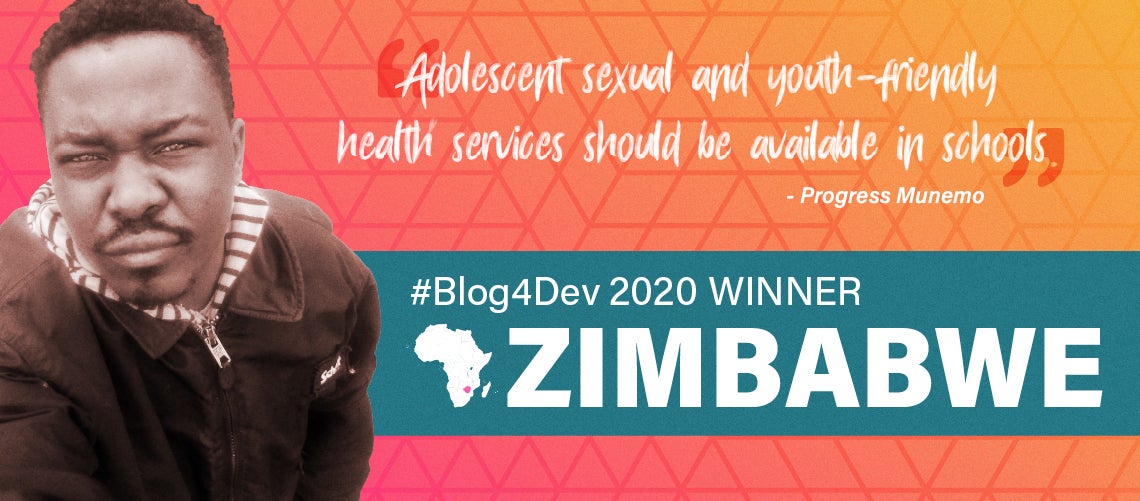 Progress Munemo, Blog4Dev Zimbabwe winner
Progress Munemo, Blog4Dev Zimbabwe winner
To end child marriage in Zimbabwe there is need for structural, institutional, community and individual strategies to tackle factors fueling child marriage. There should be a combination of strategies that target socio-cultural and economic lives of people and should include poverty reduction, improved access to education and life skills, enforcement of legal frameworks, registration of marriages, awareness creation through sex education, accessible adolescent friendly health services, investigative journalism, safe space - role models concept, effective monitoring and evaluation of programs.
A child is defined as every boy or girl below the age of 18, (Section 3 (81), Constitution of Zimbabwe). Child marriage is a marital union where either spouse is below 18 years of age, although girls are disproportionately the most affected. In Zimbabwe, child marriage is on a steady decrease, though this phenomenon is common in mining towns, farming towns and border towns (UNICEF 2014).
Safety nets that safeguard people from the harsh economic factors, especially in societies where people depend on farming, should be strengthened regularly. This will increase community coping mechanism and resilience. This will in turn decrease the marrying off of girls for economic resources and also decrease eloping among girls as there would be participants and beneficiaries in these projects.
The government should offer education incentives in ‘hotspots’ areas such as free exam fees for all girls to encourage girls from poorer backgrounds to pursue education rather than marriage. There should be improved access to education and survival skills such as sewing, market-gardening and poultry among girls in rural areas so that they can stay manage to be financially independent in the event that they drop out of school.
The enforcement of all legal frameworks that safeguard children should be prioritized and there should be a legal provision in Zimbabwe for the registration of all marriages including informal ones as a prerequisite for people to live together. This will make it easier for the monitoring of early child marriages. The teaching of sex education should be taken seriously and sex education should be made an exam subject just like mathematics to equip children with sexual knowledge. Adolescent sexual and youth-friendly health services should be available in schools and in safe zones.
The need for investigative journalism is crucial since child marriages are usually unreported and the power of social media to weed out perpetrators should be embraced. Men and boys should be involved in programming aimed at ending child marriage since they are the ones who marry off the girls as brides and marry the young girls. Social role models and safe zone concept should be done to motivate girls in areas where girls would be free to talk about reproductive issues without stigma or discrimination.
Programs targeting children should be periodically evaluated and monitored and encompass research and evidence gathering as an implementation tool so that known unknowns can be highlighted. These strategies will end child marriages through collaboration of various stakeholders and enough funding.


Join the Conversation